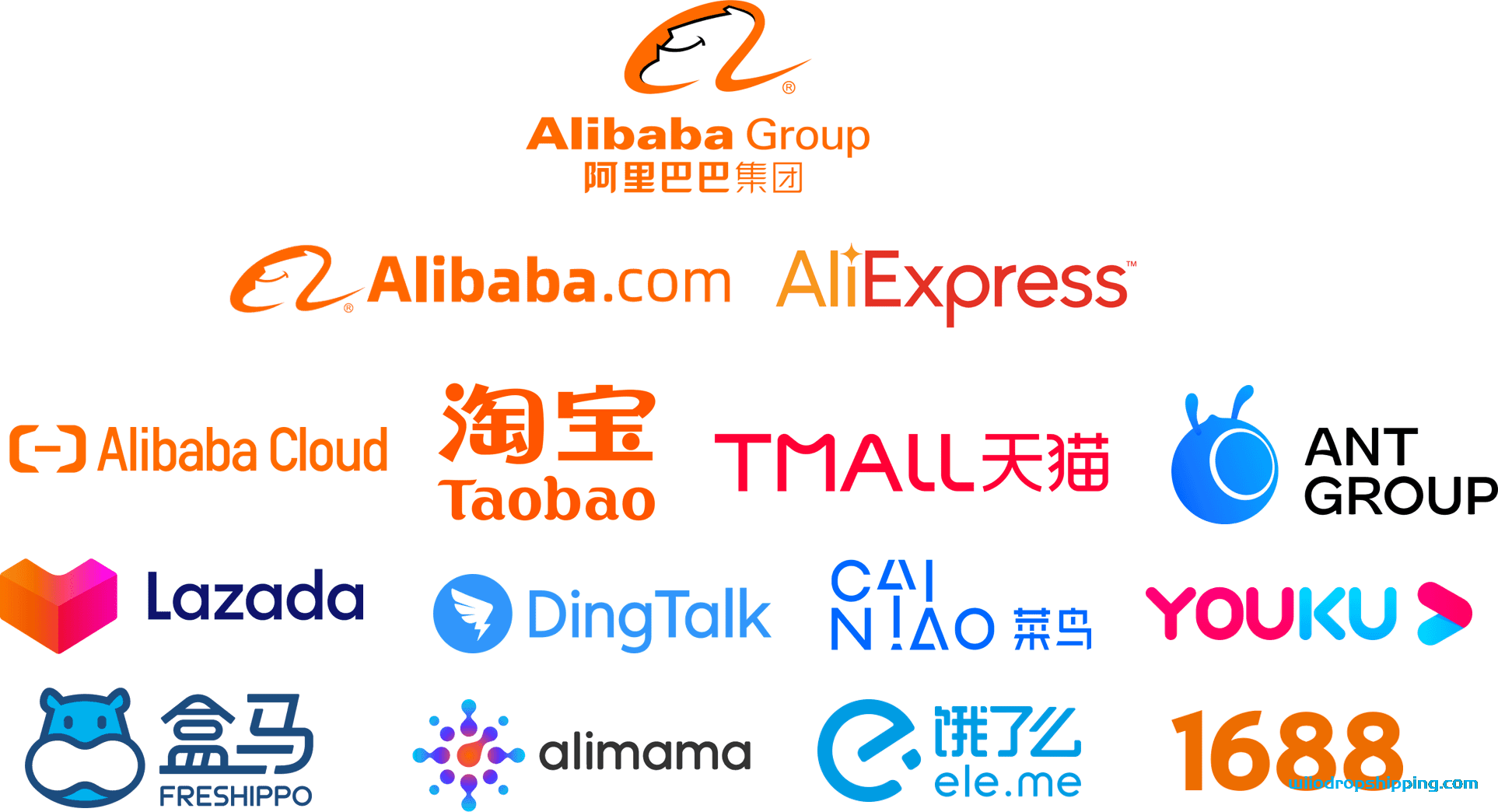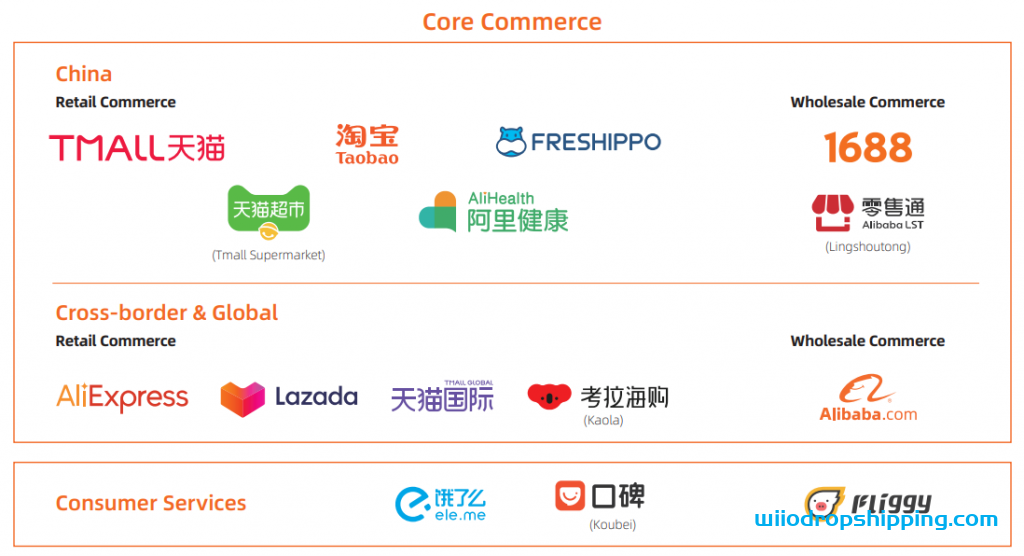Physical Address
304 North Cardinal St.
Dorchester Center, MA 02124


In this series, we explore one of China’s most iconic internet companies that captures the country’s rapid economic boom during the 2000s – Alibaba Group (Chinese: 阿里巴巴集团). Since its founding in 1999, Alibaba has grown to become the largest retail commerce business in the world in terms of gross merchandise value (GMV), with a GMV of RMB7.5 trillion generated from its China retail commerce marketplaces and a total GMV of RMB8.12 trillion generated from the Alibaba ecosystem as a whole during fiscal 2021.
While Alibaba is widely known for its success in Chinese retail commerce, the Group’s ecosystem also consists of a wholesale business segment (which is what Alibaba started with initially), international e-commerce platforms outside China (i.e. southeast Asia’s Lazada, south Asia’s Daraz, and Turkey’s Trendyol), an industry dominant cloud computing business, as well as acquired digital media, entertainment, and other initiatives. In this article, we introduce the components of the Alibaba ecosystem, and examine the constituents of the Group’s colossal commerce empire.
If you’re a merchant and want to sell products in China, one of the most prominent companies you have always heard about is Alibaba. Those who live outside China might see Alibaba as the Amazon of China. However, it is a completely wrong perception about Alibaba, because Alibaba is much more than just an E-commerce selling platform in China. Let us take you a dive into the Alibaba Ecosystem, and that might help you answer the question of How to sell in China?
What is Alibaba?
Founded in 1997, by Jack Ma and 20 other co-founders, Alibaba started off as an online headline board that allowed Manufacturers in China to inform buyers around the world that they were open for business.

What is the Alibaba Ecosystem?
The headline Board was a platform for B2B that then evolved into the Alibaba Ecosystem. It is an eye-opener to learn that Alibaba is not limited to E-commerce platforms, but it is much more expanded and the branches of Alibaba group, which go deep in where almost every product or service you use and you can think of is owned by Alibaba. And all the products and services have links to each other, which makes it work seamlessly across products and services. Hence that makes you a user into the Alibaba ecosystem.

Alibaba’s Ecosystem is spread across different industries, some of which are mentioned below:
E-commerce
Alibaba has the largest market share in China for E-commerce business. The only significant Alibaba competitors are JD.com, Suning.com. The combined market share of Alibaba’s eCommerce platform is around 80%. This 80% market share is split across different E-commerce platforms.
List of E-commerce platforms owned by Alibaba:
Financial Services
Alibaba also has its roots in Finance Technology and online payment platforms. The Ant group, also known as Ant Financial and Alipay is the financial services wing of Alibaba group. Founded in 2004, as an online payment system the AliPay soon evolved into an online bank and also cross-selling and upselling higher-value financial products.
The ANT group works like an investment, lending, and insurance product platform for individuals and Small businesses.
So if you want to sell your products in China, You’ll have to use the AliPay system to make the payment flow easier for your customers.
Media & Entertainment
Alibaba Group has also expanded itself into the media and entertainment sector for china. The Media & Entertainment branch of Alibaba focuses on content creation, live experiences, ticketing, and over-the-top entertainment.
List of Alibaba Media & Entertainment:
Cloud Computing & Artificial Intelligence
Alibaba Cloud A.K.A Aliyun is the cloud computing service offered by Alibaba. This cloud service has a full range of products and services.
List of products & Services offered by Alibaba Cloud (Aliyun)
Logistics
Alibaba is so big, it has its own logistics network called Cainiao network. The Cainiao network claims that its collaborative approach for logistics delivers everywhere in China in 24 hours, and 72 hours across the globe.
Others
There are a lot of other Innovation initiatives, Social media, Marketing platforms owned by Alibaba. And the list just goes on and on. It is easier to say that, in China, there’s Alibaba for everything you can possibly think of. As the image below showcases, various different Alibaba entities, like Mobile OS, Maps & Navigation, Car Services, Tmall Genie (Basically Tmall’s Alexa) and etc.
So to summarize Alibaba Group is a combination of Amazon, Paypal, eBay, AWS, Netflix, JPMorgan, Uber, Spotify, UPS, Android, food panda, and Etc.
It’s not easy to define what Alibaba is.
Starting out as an e-commerce platform that connects sellers and buyers, the company has grown into a giant beast with legs in almost every aspect of the internet. It still sells things online, but it also owns offline multinational retail stores. Its digital payment tool got so widely adopted, the company developed a credit reporting system around it. Alibaba’s cloud services cover the majority of the Chinese market and is among the top five globally. It is the biggest stakeholder for a number of popular social media platforms in China. It owns major shares in some of the most promising companies in the future of transportation.
No single Western company has a business portfolio comparable to Alibaba’s. To get a sense of Alibaba’s dominant position in China, imagine all these well-known Western brands rolled into one:
Most of these Alibaba entities are household names to Chinese consumers. It’s difficult to live a day without using some of them: Alipay is the default mobile payment method for many; Didi is the only ride-hailing option; internet users watch videos on Youku or Tudo, socialize on Weibo, and shop on Taobao or Tmall.
However, Alibaba has gone far beyond a collection of Western copycats. The broad spectrum of integration has created business opportunities that are innovative and unique to the Chinese market. There is no Western equivalent to Hema, the offline supermarket powered by consumer data, or Cainiao Logistics, a data-logistics platform that integrates warehousing, dispatching and delivery. Alibaba isn’t just assembling existing companies, it’s creating new ones along the way.